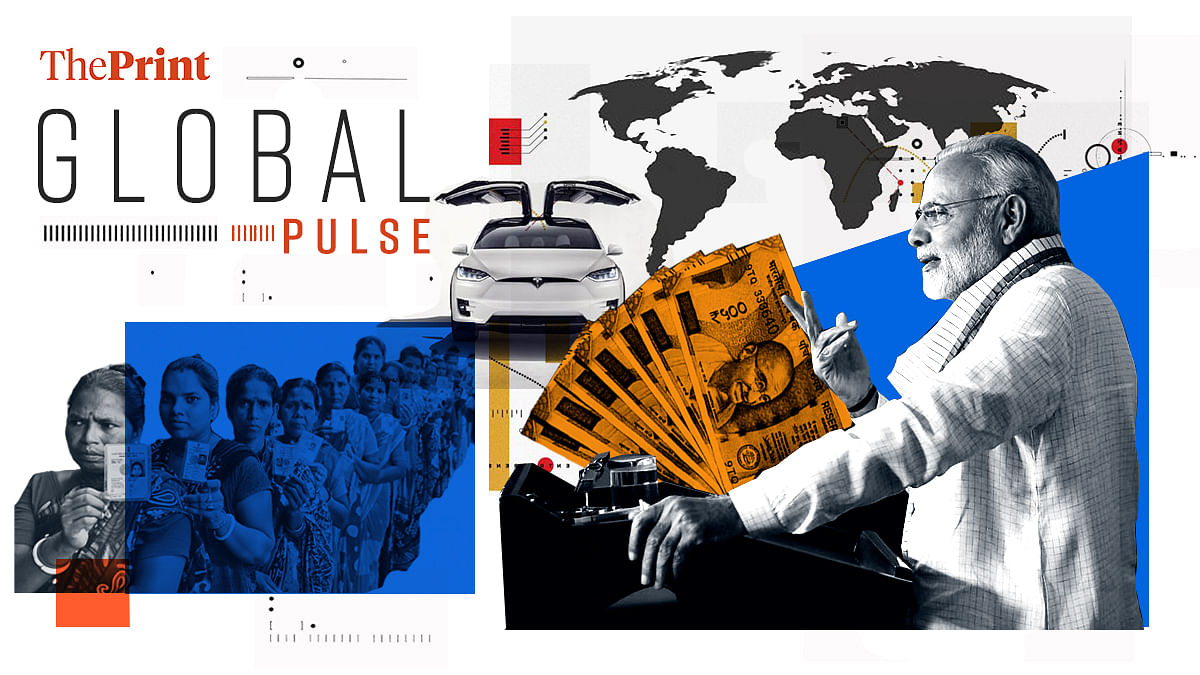
New Delhi: Investors and businesses are banking on a third term for Prime Minister Narendra Modi for “further easing of stifling investment restraints” in India, says an article in Financial Times. Stating that the nation is in a “global sweet spot”, it also says, “While Modi has built an image of being a competent economic steward, his micromanagement has had unintended consequences”. Despite improvements, adds the report, challenges such as “complex tax regulation, difficulties in acquiring land, rigid labour laws, weak intellectual property enforcement and clogged courts” remain.
The Irish Times, in an 11 April 2024 editorial, says that Narendra Modi and the BJP “seem set for an even greater parliamentary majority than in 2019”, noting that Modi has also “leant heavily on a widespread crackdown on free speech and opposition parties, with hundreds of politically targeted corruption and tax cases filed against opposition MPs and leaders. India’s democratic credentials have been severely tarnished”. The editorial also draws comparisons with Hungarian Prime Minister Viktor Orban and Turkish President Recep Tayyip Erdogan, calling it “the age of strongman leaders” and “their illiberal democracies”. The Indian Ambassador to Ireland called the editorial “highly biased” and “prejudiced” in an X post, attaching a letter that responds to the allegations: “All cases of corruption are pursued strictly as per the established procedure, with availability of usual judicial remedies to the affected parties.”
In an 11 April report, The Economist analyses the impact of India’s imports of Russian oil domestically and globally. India has emerged as the second-largest importer of Russian oil, it says. Highlighting that India’s imports have been important in preventing “a supply crunch”, the report states that the country’s influence on global oil markets will only increase.
In a The Global Times video, Charles Liu, a senior fellow at the Taihe Institute, a Chinese think tank on business and commerce, argues why India is “not ideal factory site for Tesla due to infrastructure, business environment“. Comparing India and China, he says, “India has poor infrastructure, lack of supply chain and negative business environment.” He goes on to elaborate why China is a better choice. To Elon Musk, he says: “Good luck, Elon Musk… If you’d attempt to do it in India, I think you’re going to need it.”
Middle East crisis deepens as Sudan reels under war
Israel’s top general has warned of a response to Iran’s missile and drone attack, but what kind of a response he is referring to is still unclear. In this article, Foreign Policy explains three ways Israel could respond to Iran.
“An entire generation of children in Sudan faces a catastrophe as the war enters its second year,” says UNICEF in its latest report. It highlights that “the lives, educations and futures of a generation of Sudanese children hang in the balance”. In BBC’s Letter from Africa series, writer Zeinab Mohammed Salih pens down what she has been witnessing as a journalist in Sudan and the impact on her mental health.
(Edited by Madhurita Goswami)
Also read: Iran’s response to Israel’s attack is a turning point in history. Will Netanyahu fold?









